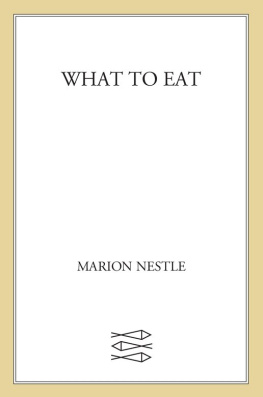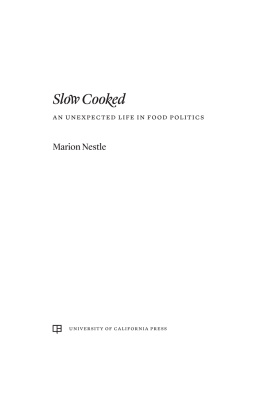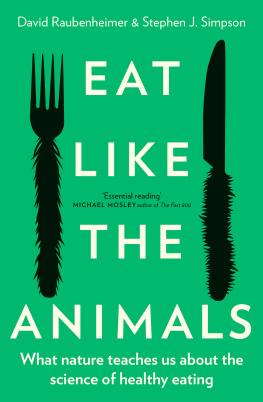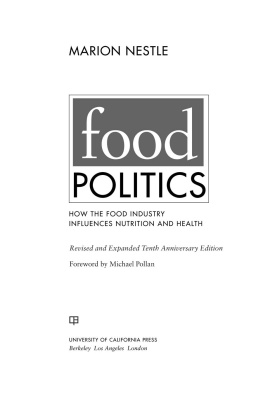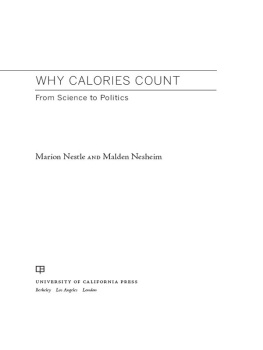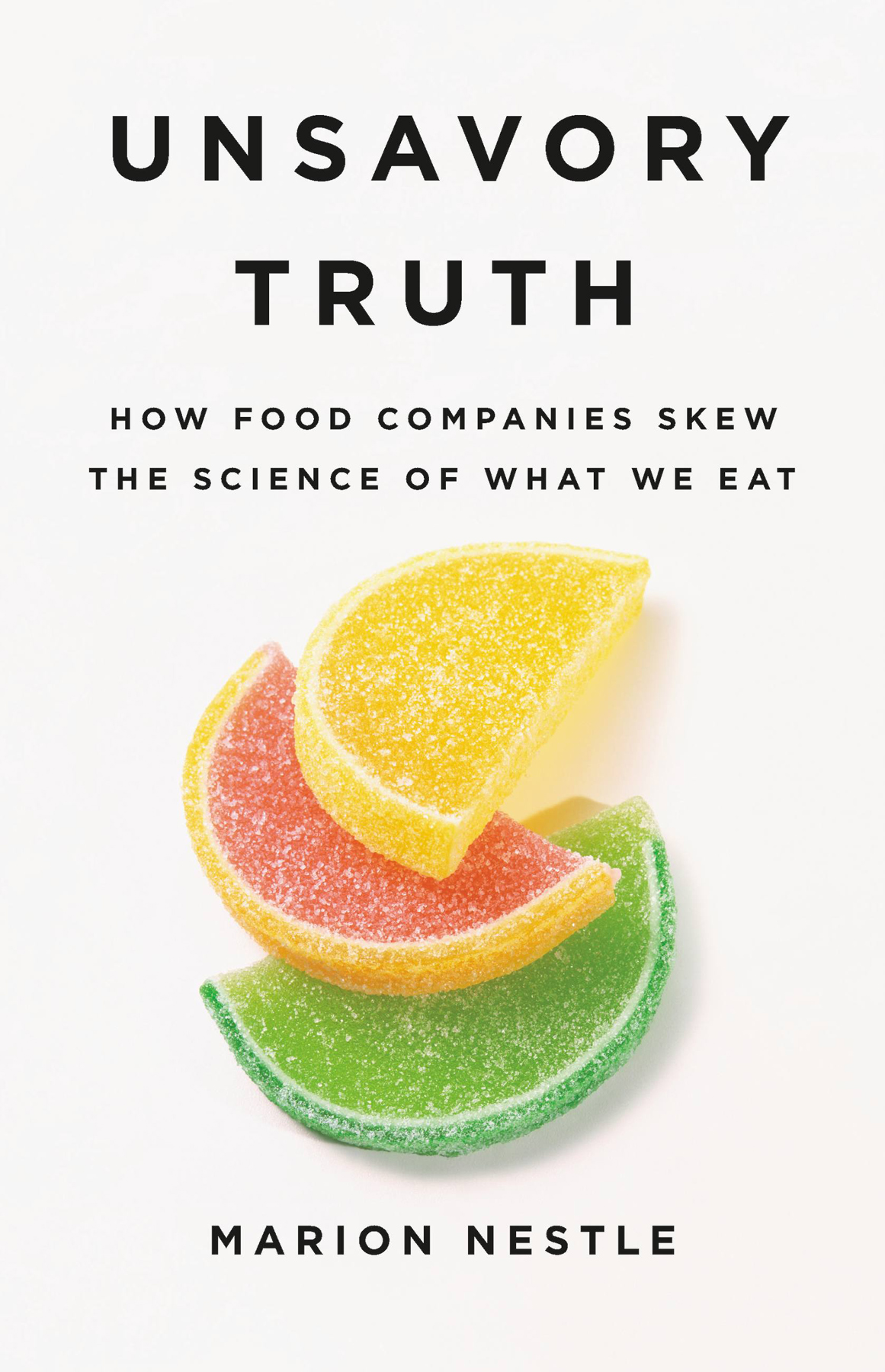
I LOVE NUTRITION SCIENCE. O N MY FIRST TEACHING JOB, I WAS assigned to teach a nutrition course and it was like falling in love. To this day, I love the intellectual challenge of figuring out what we eat, why we eat what we do, and how diets affect our health. It is not easy to study these questions in the context of everything else that influences health, not least our genetics, cultural upbringing, lifestyle, income, and education. I am also endlessly fascinated by the way food choices relate to so many of the most challenging problems in societyhealth is only the most obvious. What we eat is linked to matters of poverty, inequality, race and class, immigration, social and political conflict, environmental degradation, climate change, and much else. Food is a lens through which to examine all those concerns. I love the complexity of food issues and the passion people bring to every one of them. But I do not love the way the food industry has added an unnecessary complication: engaging nutrition professionals in marketing objectives, sometimes against the interests of public health.
Unsavory Truth is about how food, beverage, and supplement companies (collectively, food companies) fund nutrition researchers and practitioners and their professional associations, with the ultimate goal of promoting sales. This book appears at a time when scandals created by such funding make front-page news. Let me plunge right in with an unexpectedand highly surrealexample of why the topics in this book should matter to all of us.
You may recall that during the especially contentious US presidential race of 2016, hackers linked to the Russian government stole a trove of electronic messages from Democratic Party officials and posted them on the WikiLeaks website. They also stole emails from people working on Hillary Clintons campaign and posted them on a new website, DC Leaks. International intrigue like this ought to seem light-years removed from food-industry funding of nutrition professionals except for one truly bizarre coincidence: the cache on DC Leaks included messages exchanged between an adviser to the Clinton campaign, Capricia Marshall, and Michael Goltzman, a vice president of the Coca-Cola Company. While working with Clinton, Marshall was also consulting for Coca-Cola and billing the company $7,000 a month for her services.
The Coca-Cola emails may have been collateral damage from Russian interference in the American election, but to me they were a gift. They bear directly on the major themes of this book, not least because I turn up in them. The hacked emails included a January 2016 message from the director of an Australian agency doing public relations for Coca-Cola with notes taken at a lecture I had just presented to the Sydney chapter of the Nutrition Society of Australia. I was then a visiting scholar at the University of Sydney affiliated with the bias-in-research group of Professor Lisa Bero, whose studies of corporate influence on research appear frequently in this book. The emailed notes on my lecturequite nicely done, actuallyname some of the people attending my talk, review its content, and advise Coca-Cola to monitor my future presentations, research, and presence on social media and also to keep tabs on Professor Beros work.
I vaguely remember someone telling me that a representative from Coca-Cola was at my talk but thought nothing of it. My 2015 book about the soft-drink industry, Soda Politics: Taking on Big Soda (and Winning), had just been published, and I assumed that someone from that industry was in the audience at every talk I gave. The stolen emails demonstrate Coca-Colas intense interest in the activities of individuals anywhere in the world who might question the health effects of its products.
The emails also reveal this particular companys pressures on reportersand their editorswho write about such topics. In 2015, Candice Choi, a reporter for the Associated Press (AP), was investigating Coca-Colas recruitment of dietitians to promote sodas on social media. This companys public relations staff had been working with dietitians for years to get them to place sponsored content that promotes how our beverages can fit within a healthy, balanced diet. Because the staff expected Chois article to have a cynical, negative perspective, they reached out to the APs editors to formally register concerns about the story, promising to continue to urge them not to run with the story. Really? Thanks to the emails, we now know something about how this system works.


